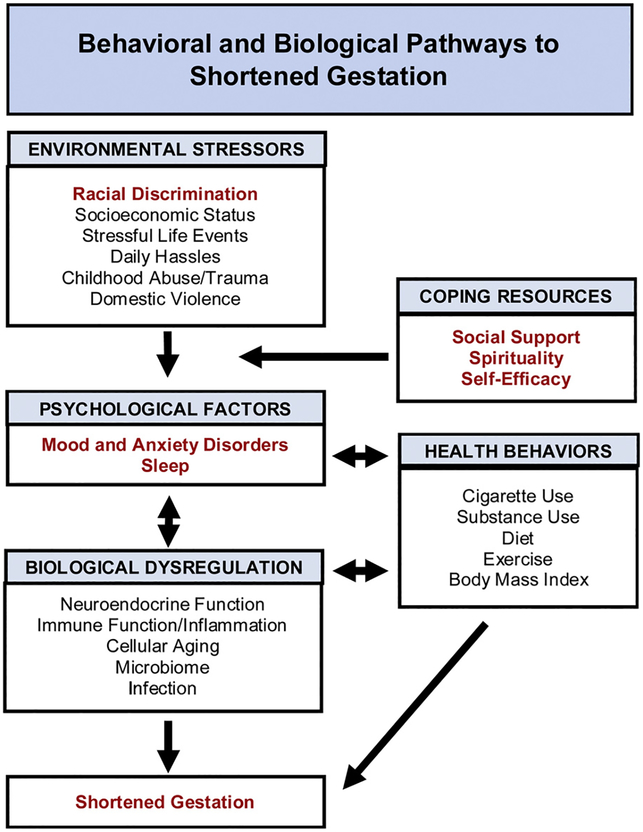Fig. 1.
Behavioral and Biological Pathways to Shortened Gestation. Racial discrimination and other objective stressors are psychosocial exposures that increase the risk for shortened gestation. These are not necessarily clinically modifiable at the individual level. However, as reviewed herein, biological sequelae (neuroendocrine function, immune function, cellular aging, microbiome) present promising targets for identifying risk and targeting intervention. These may directly impact delivery length, contributing to spontaneous occurrence of shortened gestation. In addition, these pathways can contribute to medically-indicated shortened gestation by increasing risk for clinical conditions including pre-eclampsia and gestational diabetes. Pathways bolded in red print are emphasized in the current review.

